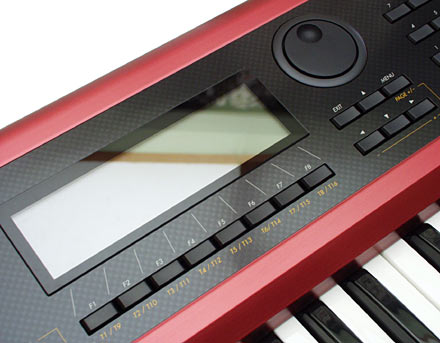In an article titled "In 5 to 10 years' time, computers might catch up with traditional technologies. Might." in David Mellor's Recording-Producer.com website, Mellor described giving up on his iPad because after trying the device for a collection of tasks and discovering it was a poor tool for reading, writing, and anything else he had hoped it would be good at. His realization from that was, "Perhaps the iPad isn't actually all that cutting edge. Perhaps even fully-fledged computers are not as cutting edge as we seem to think they are."
He goes on to a variety of comparisons of musical devices and applications that might not be as wonderful in their computer form as many have claimed. The main gist of the article was a comparison of the visual resolution of a magazine (SOS, in this case) and what it takes to get to that resolution on a computer screen. He pisses off a few readers and they replied with comments like "But try also making music with that magazine. That iPad has some very interesting apps for making music in novel ways. That magazine is limited to one function, albeit it does that one thing very good."
I thought about this for a bit and realized that I've been making this same argument for decades. So, my reply was:
I'm always entertained by the claim that users are "making music" on their iPads. If grouping stolen musical loops and repeating thumping and squeeking noises is "making music" and your standards for "music" are low enough that factory sounds fit the bill, I guess the claim has some weight. At best, this noise is as musical as the stuff that comes out of grade school music classes. Until I see someone actually play an iPad like a musical instrument with some skill and creativity beyond that required to play Guitar Hero, I'm reserving my definition of "musical instrument' to actual instruments, of which synthesizers barely qualify because of their user-hostile interfaces beyond the piano keyboard.
This is a concept with which I've had some sympathy for decades. We're hard pressed to find examples of better-made records from the digital era than from the multi-track tape years. It's not that hard to find examples of music with equal or greater emotional impact from the direct-to-disk or mono era. Digital tools are not ergonomic, on the average. They are in their infancy and may remain there forever because technology keeps marching-on from one gimmicky menu or knob-and-button format to the next without consideration of musician convenience or play-ability. As humans, we might not survive long enough to see computers as successful musical instruments. It took centuries for what we currently recognize as musical instruments to mature.
Not that long ago, I attended a seminar where an expert from Ableton Live! demonstrated the "music-making" capability of that program. I was incredibly unimpressed. The technology demonstrated wasn't the unimpressive part of the demo, the music was. "Fucking mindlessly boring" would be a compliment to the silly noises the demonstrator produced. There is a crowd of folks who imagine "dj music" is actual music, but they have grown up on repetitive video game noise and their tastes are childish, at best. These things are toys, not musical instruments, and the music reflects that lack of seriousness. The big difference between a Linus Peanuts piano or a Mickey Mouse wind-up guitar and an iPad is the price tag. The musical value is about the same. So, this isn't a generational complaint, it's more of a response to the effective marketing these toys have received.
After decades of waiting for synthesizers to become user-friendly and creativity enhancing, I've given up on the whole idea. The best we've seen from the hardware manufacturers has been cumbersome button-and-menu driven combinations that cater to "computer-users' and not to musicians. I have seen a half-dozen technically-inclined and musically capable kids (and one or three instructors) unsuccessfully fumbling over a synthesizer's menu and connector options, trying to figure out how to get the damn sustain petal to work properly. Imagine how tough it is to get an actual musical note if the pedal operation is that complicated.
Couple that hassle with the fact that hardly anyone has found a creative thing to do with a synth since Edgar Winter's "Frankenstein" or ELP's "Lucky Man" and I'm pretty convinced that I won't live to see a computer musical interface that is well thought-out. The engineering motivations are all wrong. Consumers want the next thing, not a thing that works well.


